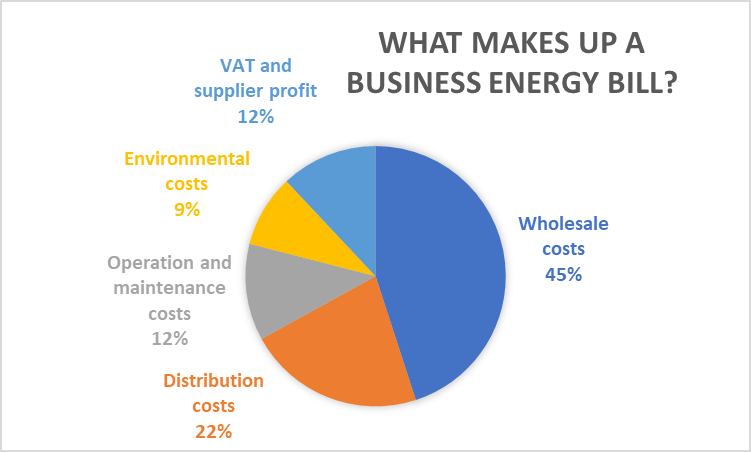



For commercial landlords, developers, and investors, understanding what affects business electricity prices is vital for managing operational costs and making informed energy procurement decisions. Electricity prices directly influence service charges, tenant satisfaction, and overall property profitability.
At Fraser Bond, we help property owners navigate the complexities of operational cost management, ensuring smarter decisions that protect and enhance their investments.
Several interconnected factors drive business electricity prices in the UK. A clear understanding of these elements allows property owners and managers to better forecast costs and optimise contract negotiations.
Wholesale electricity prices are set based on supply and demand in the energy market. Key influences include:
Global gas prices (as gas-fired power stations supply a large percentage of UK electricity).
Weather conditions impacting renewable energy production (wind, solar output).
International events, such as geopolitical tensions, affecting fuel supply chains.
When wholesale costs rise, energy suppliers pass these increases on to businesses, often reflected in contract renewals.
Even if wholesale prices remain stable, businesses still pay charges associated with maintaining the UK’s energy infrastructure, including:
Transmission Use of System (TNUoS) charges – covering the high-voltage transmission network.
Distribution Use of System (DUoS) charges – covering regional distribution networks.
These charges vary depending on location. London businesses, for instance, sometimes face higher distribution costs due to network congestion and higher demand.
UK business electricity prices also include government-imposed charges to support national initiatives, such as:
The Climate Change Levy (CCL) – encouraging businesses to reduce carbon emissions.
Subsidies for renewable energy development.
Energy Company Obligation (ECO) programmes supporting energy efficiency improvements.
These levies typically account for around 20–25% of the final bill for many businesses.
Electricity rates can vary significantly based on:
Consumption volume: Higher-usage businesses may negotiate better rates.
Load profile: Businesses with high daytime usage patterns often pay less than those with significant evening or overnight demand.
Understanding your property's or tenants’ consumption patterns is critical when negotiating supply contracts.
Fixed contracts provide price certainty but may lock in higher rates during volatile markets.
Variable contracts expose businesses to market-driven price fluctuations.
Choosing the right contract type at the right time significantly affects long-term electricity costs.
The level of competition among energy suppliers also influences pricing. Periods of intense competition can drive prices down, while supplier exits or market consolidation can result in higher rates.
Keeping an eye on supplier market health is essential when planning contract renewals.
Understanding what affects business electricity prices enables property owners to:
Forecast service charges accurately and transparently.
Structure lease agreements that account for energy cost variability.
Advise tenants strategically on energy procurement.
Protect property profitability through smart operational planning.
Fraser Bond provides clients with:
Introductions to trusted energy consultants.
Strategic advice on timing contract renewals.
Guidance on energy procurement aligned with ESG (Environmental, Social, and Governance) goals.
Our holistic approach ensures that every operational decision — including energy management — supports investment performance and regulatory compliance.
Electricity pricing for businesses is influenced by a complex mix of wholesale market movements, infrastructure charges, government policies, and usage patterns. Understanding these factors is essential for property owners aiming to optimise operational costs and enhance asset profitability.
Fraser Bond offers expert guidance, helping commercial property owners navigate these challenges with confidence and precision.